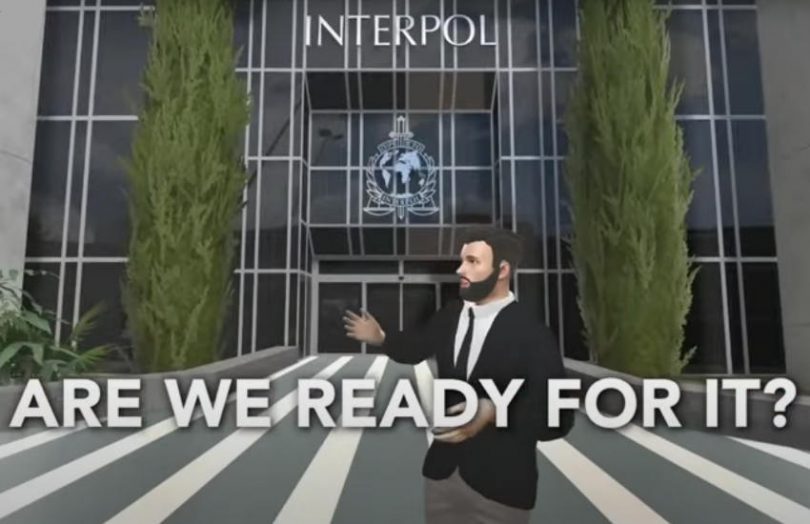Yesterday the global police organization unveiled the INTERPOL Metaverse during its General Assembly in India. The initial virtual world is mainly designed for immersive training courses for forensic investigations.
“For many, the Metaverse seems to herald an abstract future, but the issues it raises are those that have always motivated INTERPOL – supporting our member countries to fight crime and making the world, virtual or not, safer for those who inhabit it,” said INTERPOL Secretary General Jürgen Stock.
The organization has created an Expert Group to ensure new virtual worlds are ‘secure by design’. It is also participating in a World Economic Forum initiative around metaverse governance alongside Meta, Microsoft, Mastercard, JP Morgan, and numerous major brands, as well as blockchain and web3 names such Animoca Brands and Decentraland.
“In order for police to understand the Metaverse, we need to experience it,” said Madan Oberoi, INTERPOL’s Executive Director of Technology and Innovation.
It is concerned about potential metaverse crimes, including against children, data theft, counterfeiting, ransomware, sexual assault and harassment. One of the challenges is that something that is criminal in the physical world may not be in the virtual world.
INTERPOL also sees the upsides of virtual worlds for its own use, such as remote work, collecting and preserving evidence from crime scenes and training.
On the topic of training, since the start of the pandemic, Accenture has onboarded 150,000 new staff in its metaverse experience.






